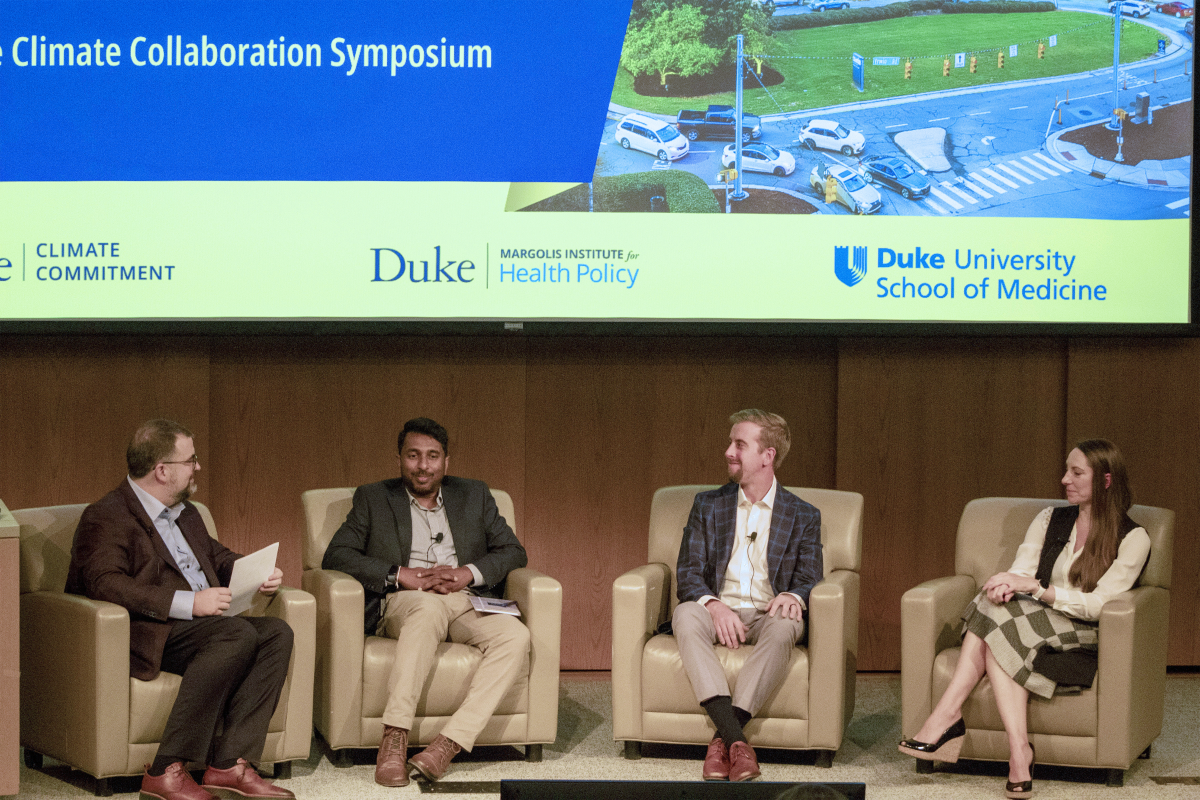How climate disasters threaten the health of incarcerated people
A new Duke University School of Medicine study reveals how climate disasters intensify the already harsh conditions faced by people who are incarcerated. Published in the journal, SSM - Qualitative Research in Health, the researchers examined how climate disasters, such as hurricanes, floods, and extreme heat, uniquely impact individuals who are incarcerated, especially in settings lacking basic protections.
Where climate meets health: Duke researchers chart a path forward at ‘Big Idea’ symposium
Duke University School of Medicine hosted its first Climate and Health “Big Idea” Symposium on January 22, bringing together faculty and trainees from across campus to share ideas aimed at addressing the health impacts of climate change.
Climate Collaboration Symposium Explores Pathways to Resilient, Sustainable Health Systems
Health and climate are deeply intertwined. Both are central to families, communities, and economies. Yet, both are under pressure.
Duke receives $4.5 million from The Duke Endowment to fund initiative focused on climate and health
Through interdisciplinary research, community engagement, and data-driven strategies, the new Climate and Health Research Initiative (CHeRI) will unite efforts across Duke and advance efforts in the Duke University School of Medicine, Duke Global Health Institute, Nicholas School of the Environment, and the Nicholas Institute for Energy, Environment & Sustainability.
Healing After Natural Disasters
Duke experts are exploring how natural disasters and other extreme events affect mental and physical health.
PhD Student Focuses on Heat, Health, and Community
Elizabeth Rojo, a PhD candidate in Population Health, aims to develop interventions to protect vulnerable populations such as farm workers from the effects of extreme heat.
As the Planet Warms, Fungi Find a Way In
As global temperatures rise, fungi are evolving to survive in warmer environments—potentially breaching the human body’s natural thermal defenses. At a Duke University symposium, scientists warned that climate change may be fueling the emergence of heat-tolerant fungal pathogens, posing a growing threat to public health.
Climate Pathfinders: For Trish Dalapati, Medical Research is Personal
MD/PhD student Trisha Dalapati saw firsthand how climate affected health in the community in India where her family lives. At Duke, she's raising awareness of the links between climate and infectious disease through initiatives including a pilot course and a podcast.
What We Still Don’t Know About Kids and Climate Change
Light sensors used to track preschoolers’ outdoor time could reveal how heat, pollution, and allergens impact their health in a warming world.
The Fungal Fallout of Climate Disasters
When Hurricane Helene hit Western North Carolina, it left more than flood damage—it created fertile ground for mold and fungus to growth. Now, a Duke University team is studying how post-disaster fungi could affect health and recovery in a warming world.









